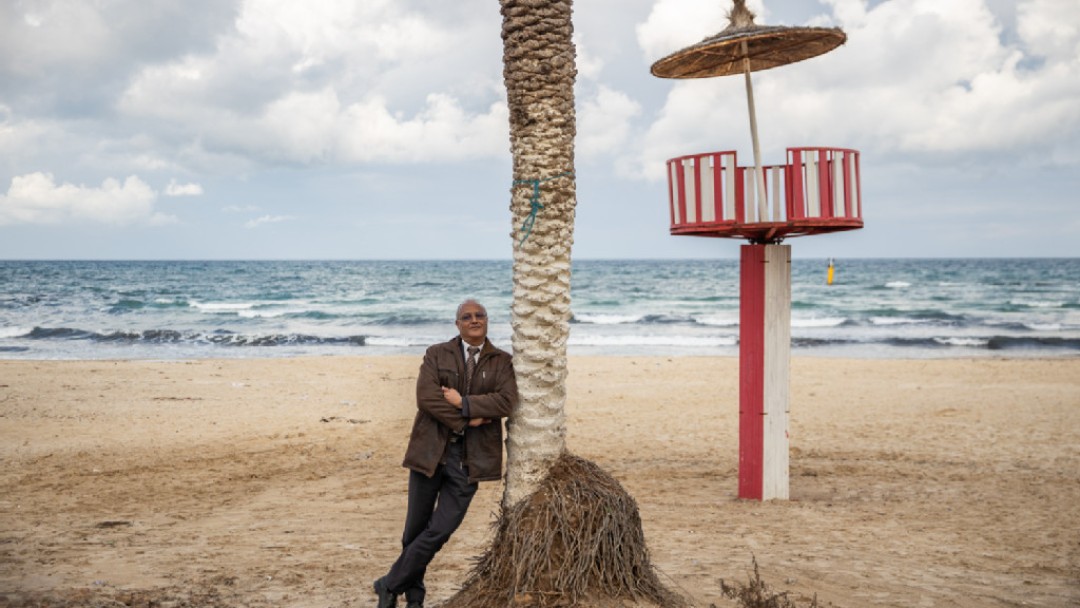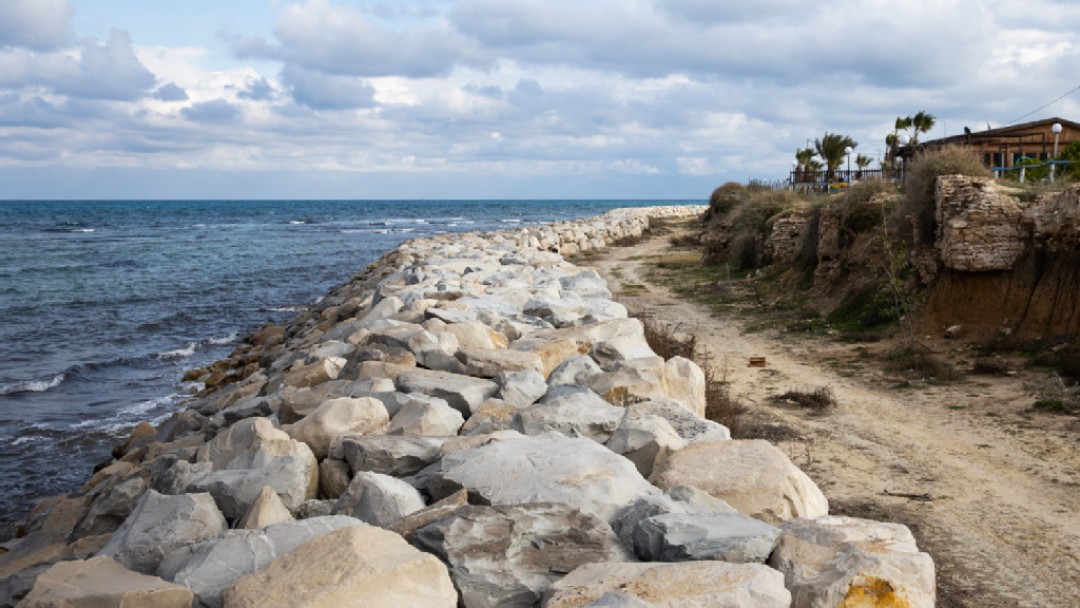News from 2020-12-02 / KfW Development Bank
Climate change as a new challenge for coastal protection

A debt conversion agreement was recently signed in Tunis and Frankfurt: The Tunisian coastal protection agency APAL (Agence de Protection et d' Aménagement du Littoral) is financing coastal protection measures to the tune of €15 million.
One of the drastic consequences of climate change is the rise in sea levels in many regions of the world, twenty to eighty centimetres per century, one metre by 2100, including Tunisia with its 1100 km of coastline, of which about 100 km are already affected by severe erosion. Two thirds of the population live near the coast, most of the large cities are located there, and 90 percent of economic output is generated in this region. Sea-level rise not only increases the risk of increasing flooding, but also creates further risks for coastal communities. One problem is increasing coastal erosion, which is caused by stronger wave action and higher water levels in the shallow coastal areas. The coastline is shifting further and further inland and beaches important for tourism are being washed away. In addition, saltwater infiltrates the groundwater, salinating the already scarce freshwater resources and soils - making drinking water undrinkable and agricultural irrigation difficult.

On behalf of the German Federal Ministry for Economic Cooperation and Development (BMZ), KfW Development Bank has been supporting coastal protection in Tunisia with EUR 27.4 million since 2013. Measures are being financed to strengthen bank reinforcements such as sand fills, groynes and breakwaters, but also to plant dunes for stabilisation and to support the coastal protection authority. This will benefit tourist destinations - not only because the beach will become "wider", but also because several thousand jobs will be secured. For farmers in the fertile coastal strip, valuable soil is preserved and groundwater is spared from salinisation.
Portfolio manager Dr. Sandra Wegner comments: "Success factors of the coastal protection program are on the one hand the very close and trustful cooperation with APAL, but also the participatory approach of the program, which ensures that the affected communities and user groups are involved in the planning and implementation of the measures and that the implemented measures are used, operated and maintained in a sustainable manner. In the affected sections, the coastline has already been dynamically stabilised.
After completion of this fifth phase of the coastal protection project - in five to seven years - Germany will waive old debts of 15 million euro from Tunisia. The country would not have been able to implement this program from its own resources.

Share page
To share the content of this page with your network, click on one of the icons below.
Note on data protection: When you share content, your personal data is transferred to the selected network.
Data protection
Alternatively, you can also copy the short link: https://www.kfw-entwicklungsbank.de/s/enzBWrMC.CVwA
Copy link Link copied